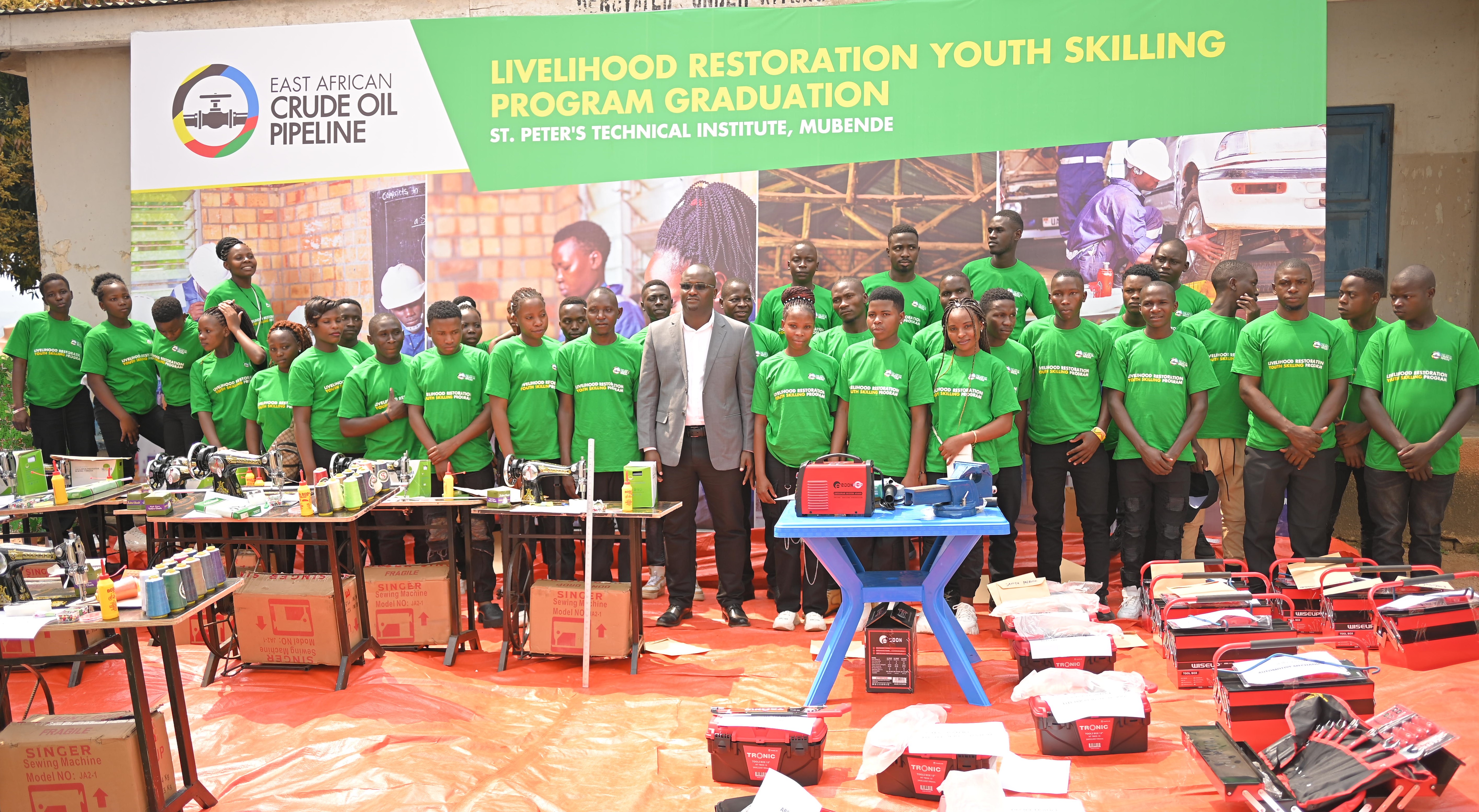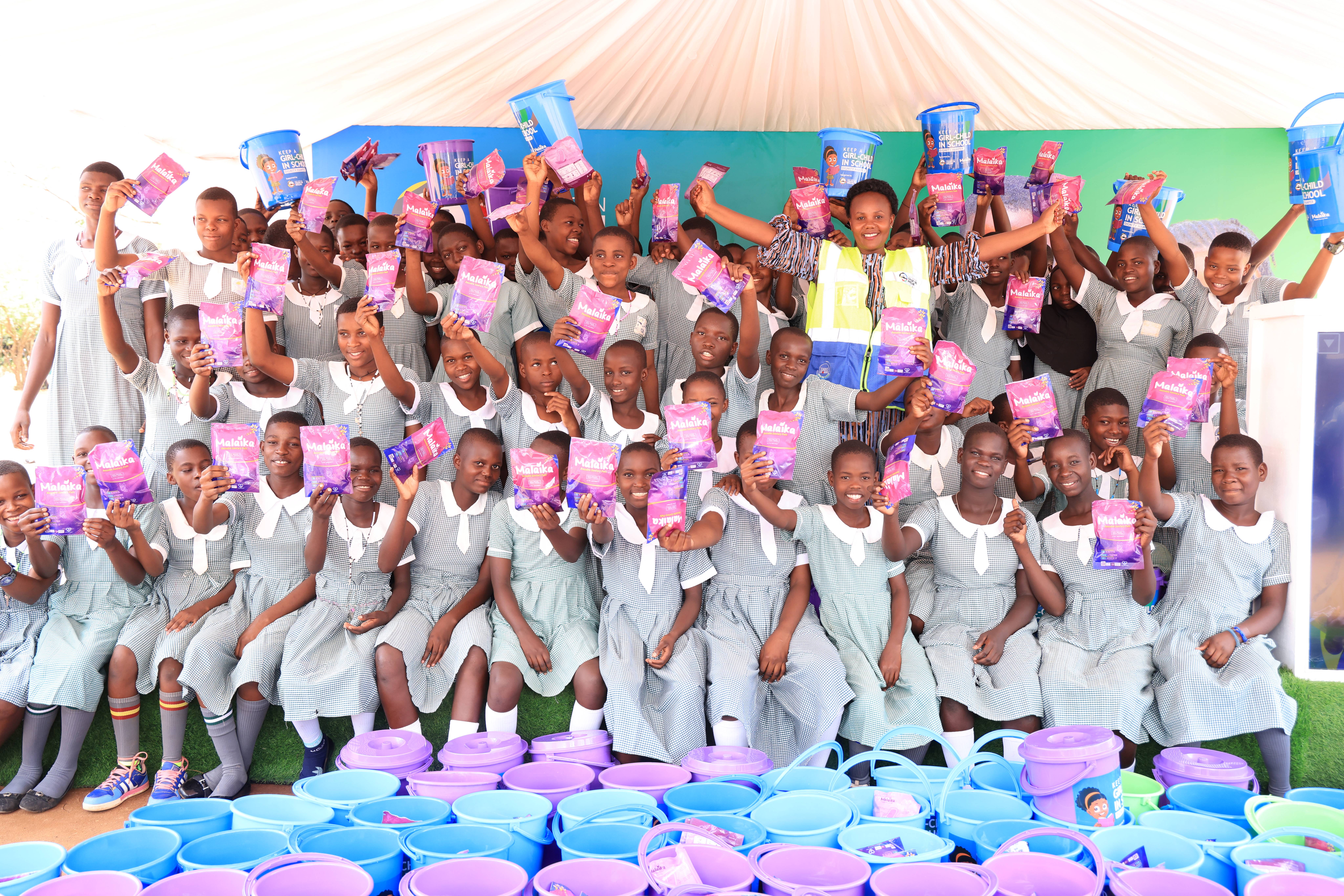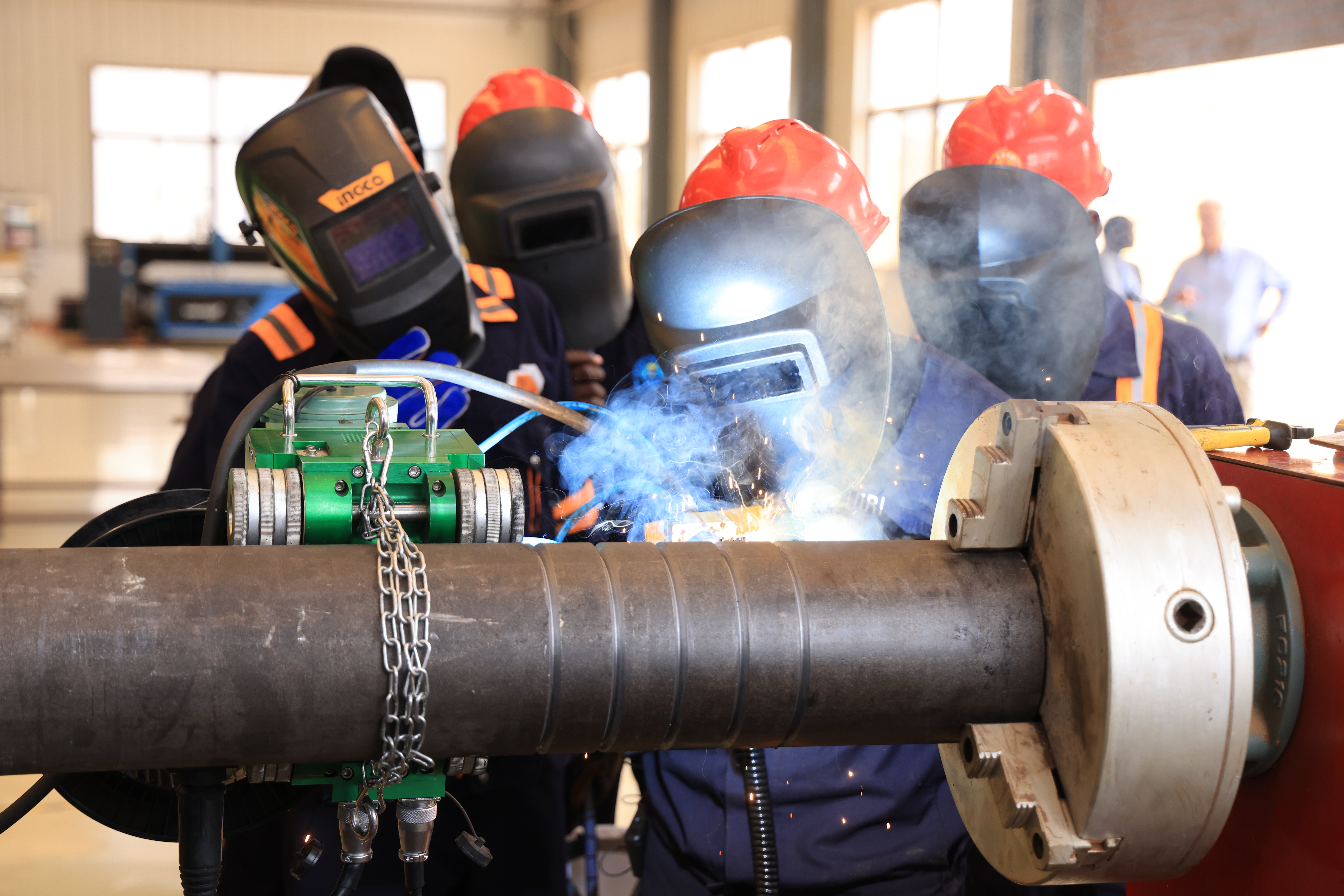Kampala, Uganda, 26 March, 2025 EACOP Ltd., the company in charge of the construction and…

EACOP equips project-affected households with income-generating tools in Mubende District.
The East African Crude Oil Pipeline (EACOP) Ltd has provided start-up kits to households affected by the project as outlined in the Resettlement Action Plan (RAP). These kits are intended to help the families establish income-generating activities, enhancing their ability to support themselves. The distribution of these kits follows the completion of vocational skills training programs by the affected households at selected institutions in Mubende District. This initiative is part of the company’s commitment to empower affected households through a Global Livelihood Restoration program, aiming to restore, transition, and improve their livelihoods by utilizing available household resources post-resettlement.
A total of 35 students completed vocational training from St Peter’s Vocational Training Institute in Mubende district. Of the 35 graduates, 13 female and 22 male attended classes from the institution. In summary, 100% of the enrolled youth completed their training at St. Peter’s Technical Institute, Mubende.
Each graduating student received a complete start-up kit, carefully identified and procured to suit their specific vocational program. These kits were provided to the 35 graduates across various categories, including Tailors & Garment Designers, Welders, Builders, Motor Vehicle Mechanics, and Electricians.
The project, facilitated by the contractors Montrose, provided support to the youth in the form of tuition, scholastic materials, and a basic starter pack upon completion.
About the Livelihood restoration program
- Project-related land acquisition/restrictions lead to a loss/access of assets that leads to loss of income sources or other means of livelihood.
- The objective of the Livelihood Restoration Program is to provide project affected persons whose livelihoods or income levels are adversely affected an opportunity to improve, or at least restore, their means of income-earning capacity, production levels, and standards of living.
Livelihood restoration is going to be implemented in two phases.
Phase 1:
Provide transitional support to households as a short-term measure to support their food security in terms of dry rations/ food baskets within the first 6-12 months as soon as the affected Households vacate land. The amount you receive and how long you’ are supported depends on how heavily they have been impacted.
Phase 2 & 3:
Provide Households with opportunities and support to improve their livelihoods back to pre-project levels through Agricultural Improvement activities and enhancing skills of household members through vocational training. Phase 3 involves additional optional packages that will be delivered to PAHs after Phase 2.
Those PAHs assessed to have been affected will be supported with both short-term transitional support in the form of dry rations and thereafter be enrolled on the agricultural improvement program and vocational training for selected youth in the affected households.
- The nature of support and duration depends on how heavily you will have been impacted.
- Commencement of Livelihood support begins as soon as PAPs vacate the land and support will begin with PAPs in priority areas (MCPYs) where land acquisition will be acquired first.
- The students that will receive Vocational training are from Project affected households in the Priority Areas (Material Camps and Pipe Yards- MCPYs). Other students from the rest of the Pipeline Area will be enrolled in season 2 that begins in August 2024.
- For easy coordination, we have divided the 10 districts through which the ROW crosses into two sections, i.e., the South and North. The south section covers districts of Sembabule, Gomba, Lwengo, Kyotera and Rakai and the North covers districts of Hoima, Kikuube, Kyankwanzi, Kakumiro and Mubende.



